Talking With Tech AAC Podcast
Interview
Episodes
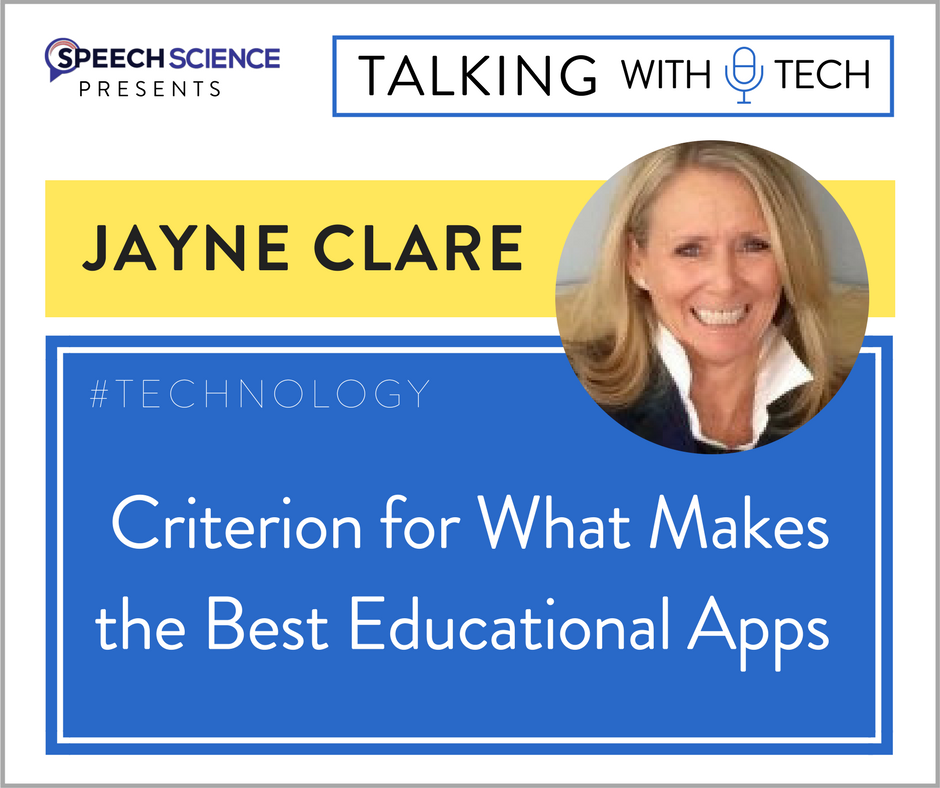
Sunday Mar 11, 2018
Sunday Mar 11, 2018
Jayne Clare, a thirty-year veteran teacher in special education, has been a leader in introducing educational technology into the classroom. She is co-founder of TeachersWithApps, a National School Boards Association "20 to Watch;" Leader Advancing Education Technology, and weekly host of EdAppTalk, an open table Facebook Group. She has worked with Brainpop facilitating webinars, served as an educational curator for many organizations and is an avid blogger. School reform, diversity, reading readiness and teacher tools are among her favorite topics. Through her extensive work critiquing educational content for TeachersWithApps, she has created a viable and valuable resource for educational technology and anything trending in the digital space.
In this episode, she joins Rachel and Lucas for an informative, inspirational, and often very funny conversation - and you'll learn a lot about apps!
As always, don't forget to rate, subscribe, and come join our the Facebook Page and Group, not to mention Twitter and Instragram. We'll only get better if we know what will benefit your practice!

Sunday Feb 25, 2018
Sunday Feb 25, 2018
This week Rachel and Lucas are joined by the brilliant Jane Odom, director of PRC's LanguageLab! The conversation covers the importance of presuming competence, incorporating user interests and age-relevant material in AAC, PRC's LanguageLab and Realize Language, family and peer training, and specific instructional strategies for the classroom. Check it out - and if you like it, don't forget to rate us and subscribe on iTunes!For more information, see:PRC AAC LanguageLabRealize Language
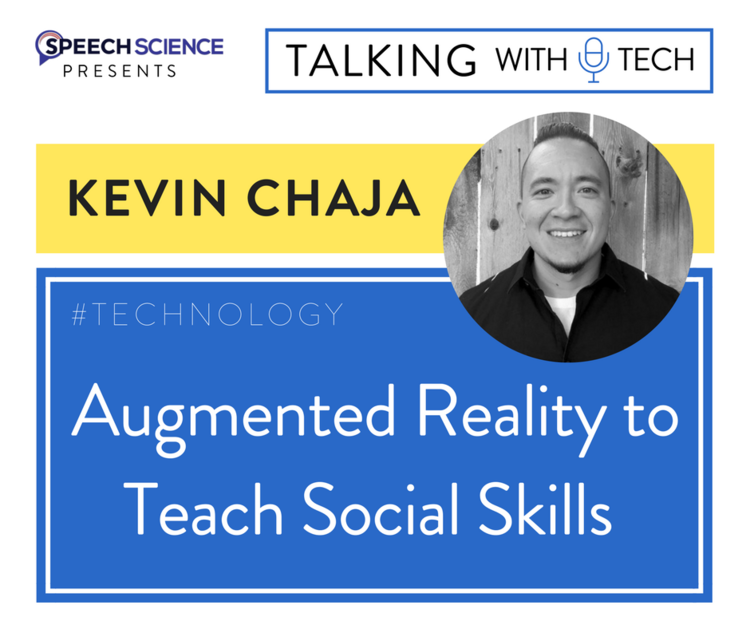
Thursday Feb 22, 2018
Thursday Feb 22, 2018
In this episode Talking with Tech's Rachel Madel interviews Kevin Chaja of Color Black's Moment AR app to discuss brand new app that helps children with autism learn social skills. Also discussed: Clinical applications for augmented reality and the future of AR/VR in education.
Name: Kevin ChajaE-mail: kevin@colorblack.tvWebsite: www.colorblackmoment.comtwitter: @el_chakkainstagram: @madcatprimusfacebook: @kevin.chajaMerge VR Cube: https://mergevr.com/Developer: Chicken Waffle http://www.chicken-waffle.com/App on iTunes: https://itunes.apple.com/us/app/moment-ar/id1262045402?mt=8
Interview Show Notes (timestamps from beginning of interview):
1:30 Explaining what Augmented Reality is
4:00 Describing "Moment AR" app
6:15 Different Modules for a variety of professionals
9:00 Backstory behind the app development
11:45 Potential for Augmented/Virtual reality in education
13:25 Clinical applications for app
16:00 How merge cube promotes engagement
19:00 ASHA convention giveaways/Autism starter pack
21:15 Future updates for app/next level social skills
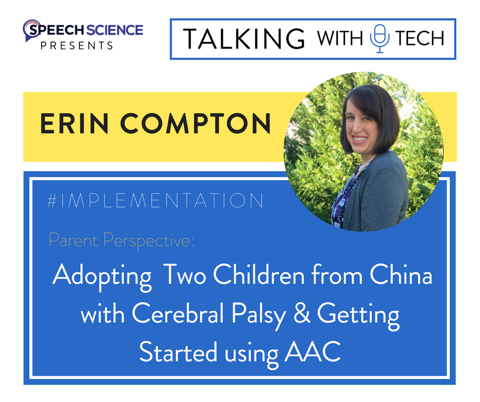
Monday Feb 12, 2018
Monday Feb 12, 2018
Erin Compton is a mom to 13 children who blogs about family life, adoption, special needs and AAC learning. As a homeschool instructor she has over 20 years of experience working with young language learners. Through the recent adoption of two sons with cerebral palsy, the family has started on an AAC journey to find voices for their sons.
For more, see Erin's YouTube, Instagram, and Facebook!
Interview Show Notes:
Adopting two sons with cerebral palsy from an orphanage in China
In the beginning of AAC it’s more about educating yourself than educating your child
Spreading the AAC gospel
AAC is a journey and belief that your child is capable is the first step
Erin’s experience homeschooling 13 kids and the disbelief that she’s encountered.
How the comfort of home is typically the first place you see communication happens
Making modeling a whole family experience
The power of peer modeling
The first time Erin heard the word “mama”
The importance of SLPs working together with parents
International perceptions of special needs children and the high incidence of abandonment
Karma and how it plays into special needs perceptions in China
Experience of touring a Chinese orphanage with 700 children
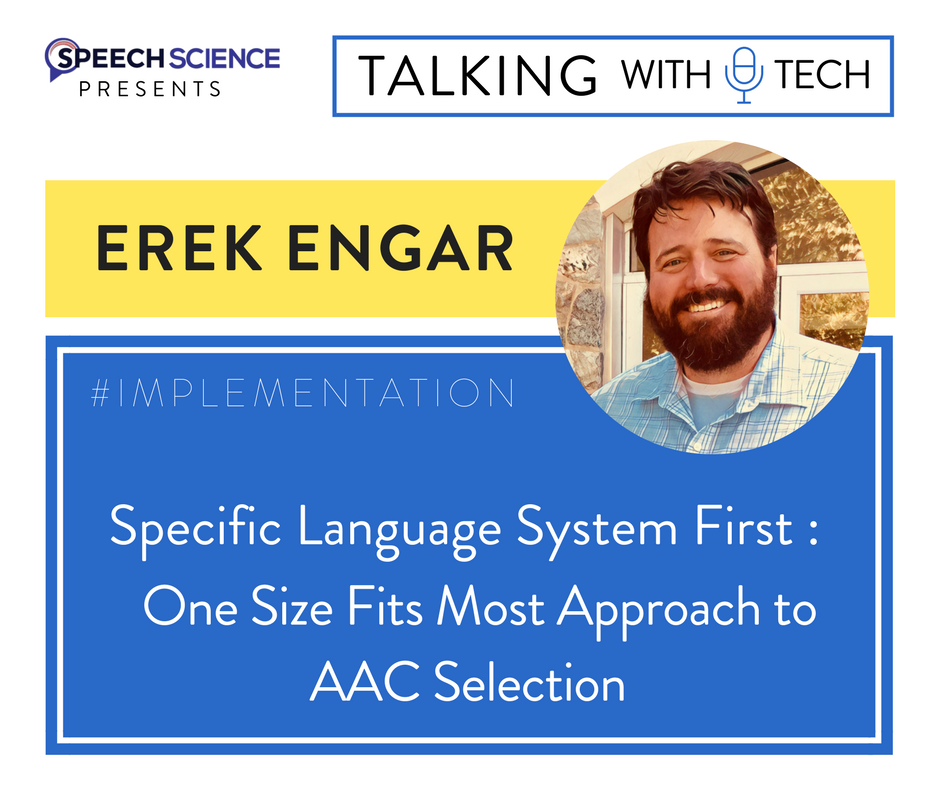
Sunday Feb 04, 2018
Sunday Feb 04, 2018
It's time for what might be our most controversial show yet! If you have an opinion - for or against - please comment below or email at us at tech@speechscience.org and we'll be happy to address your concerns next episode!
Problem:School districts are faced with having to consider the AAC needs for many children. The focus has been on selecting the perfect system. Teaching communication partners how to implement all day long has been the challenge. What if we could decrease the amount of time the selection process takes and spent that saved time on teaching implementation?
So how do we do it? Or should we?
Interview Show Notes:
Erek introduces himself
The concept of Specific Language System First approach to AAC
Erek describes what happens when a student comes into the school district - starting with Proloquo2go 6x10 grid.
Why use this approach?
Multiple teachers using multiple devices meant they have trouble developing a community of practice...but not anymore.
Chris describes feature matching.
Previous model of selection was born in an era when devices were more scarce.
Language systems were different years ago...now the systems are more robust.
Good systems + low cost
Teachers still struggling with implementation so spend more time on teaching them how to implement (rather than selecting the “perfect” device”)
“A system that isn’t perfect for a student but is implemented well is better than choosing the perfect system that is implemented poorly.”
Coaches spend less time on assessment and more on implementation.
The number one reason a teacher says it doesn’t work is, “The student doesn’t like it”
Explicit instruction- I do, you do, we do.
First two questions people used to ask.. “There are too many buttons” and “I need different buttons.”
After implementation training on Aided Language - now people don’t ask those anymore.
Over summer, started developing a repeatable, easy to implement, language-based word of week program
Modeling Mondays! Pull up PowerPoint slides on how to use the word.
Tuesday is Literacy Day! Use and read the core word a day using stories and books. Writing as well.
Wednesday is Math Day!
Thursday - Review previous introduced words.
Folder Friday - Explore folders (Fringe)
Generalization is what is being tackled next.
The best feature you can match is implementation.
Homework on word of the week lessons and involving parents.
Your system is in place and then you adapt.
Be patient! Progress will come if you stick with it.
200 high tech aac users and doing well - used to be 10 who weren’t using it well.
If we had to switch systems, we could.
It is hard to pick a bad system
The focus should shift from selection to implementation.
Potential Solutions:
Have discussions about implementing this approach.
Beyond word of the week programs, use a language-based curriculum (materials where language is the object of the lesson, not infused into some other point of the lesson. Ie, Use apples on a tree to teach prepositions NOT do a lesson on apples where we try to also sneak in spatial concept words)
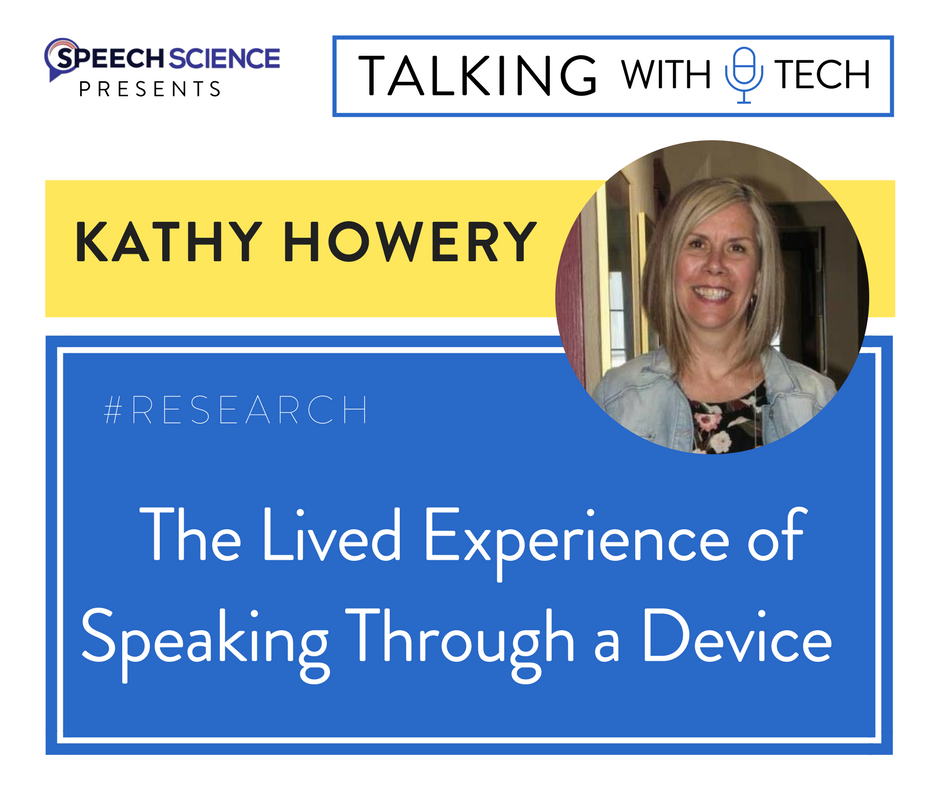
Friday Jan 26, 2018
Friday Jan 26, 2018
Kathy Howery joins Chris Bugaj to discuss her research on the lived experience of AAC users. Afterward, the team comes back together to talk about the importance of human identity - and humor - in language use.
Thanks for listening! As always, contact us at tech@speechscience.org with any feedback and make sure to subscribe and share with your friends! If you'd like to support our work, we always appreciate any gesture via Patreon.
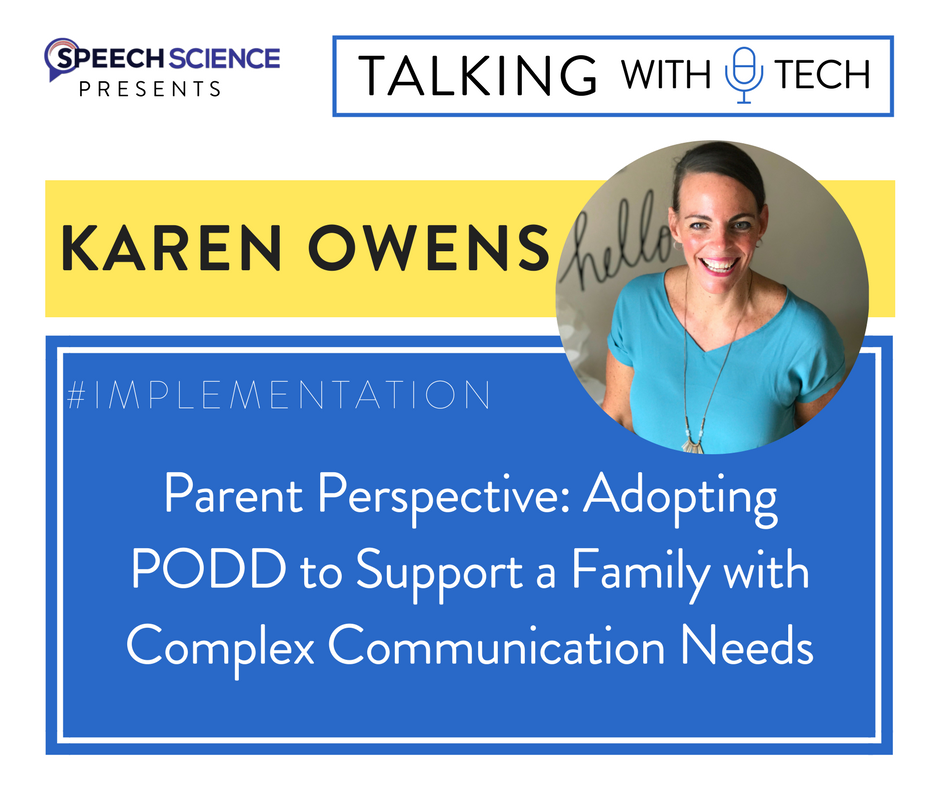
Tuesday Jan 16, 2018
Tuesday Jan 16, 2018
Karen Owens of We Speak PODD joins Rachel Madel for a conversation about parenting children with complex communication disorders. Meanwhile, the group discusses the nature of parents' relationships with both the schools and broader therapeutic systems and how they - and we - can be strong advocates for their children.
Thanks for listening! As always, contact us at tech@speechscience.org with any feedback and make sure to subscribe and share with your friends! If you'd like to support our work, we always appreciate any gesture via Patreon.
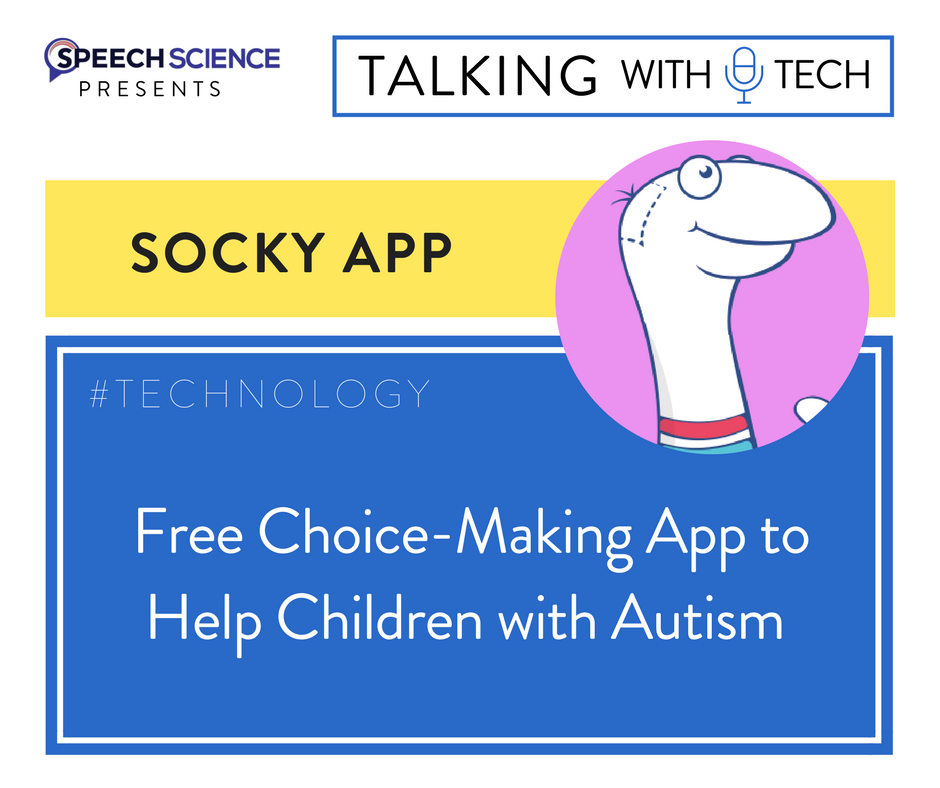
Thursday Dec 21, 2017
Thursday Dec 21, 2017
Alex Pavtoulov and Ofir Harel of Olà Mundo join Rachel and Lucas to talk about Socky, a symbol-based two-way communication system for children with Autism as well as their parents and circle of support. The group also discusses social reciprocity in ASD and how to make therapy tools engaging.
For more information about Olà Mundo and Socky, visit their site and try out the app, which is available on both iOS and Android - and it's free!
Thanks for listening! As always, contact us at tech@speechscience.org with any feedback and make sure to subscribe and share with your friends! If you'd like to support our work, we always appreciate any gesture via Patreon.
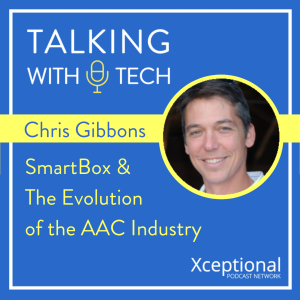
Sunday Dec 17, 2017
Sunday Dec 17, 2017
In this episode Talking with Tech's Lucas Steuber, Rachel Madel, and the long-list Chris Bugaj sit down and discuss international development in AAC before welcoming Chris Gibbons of SmartBox to the show. Chris shares beautifully about his many years of experience in the industry, the transition from intervention to the lab to the market, changes over time to the funding model - both good and bad - as well as Grid 3 and some thoughts on what's to come.
For more information about Chris and SmartBox, be sure to visit their site and - if you get a chance - catch him presenting at many related conferences such as ASHA, ATIA, ISAAC, and pretty much everywhere else.
Thanks for listening! As always, contact us at tech@speechscience.org with any feedback and make sure to subscribe and share with your friends! If you'd like to support our work, we always appreciate any gesture via Patreon.
*Disclosure, Lucas Steuber and Chris Gibbons have worked together before on minor projects through their shared venture GiveLanguage, but neither party received financial compensation.
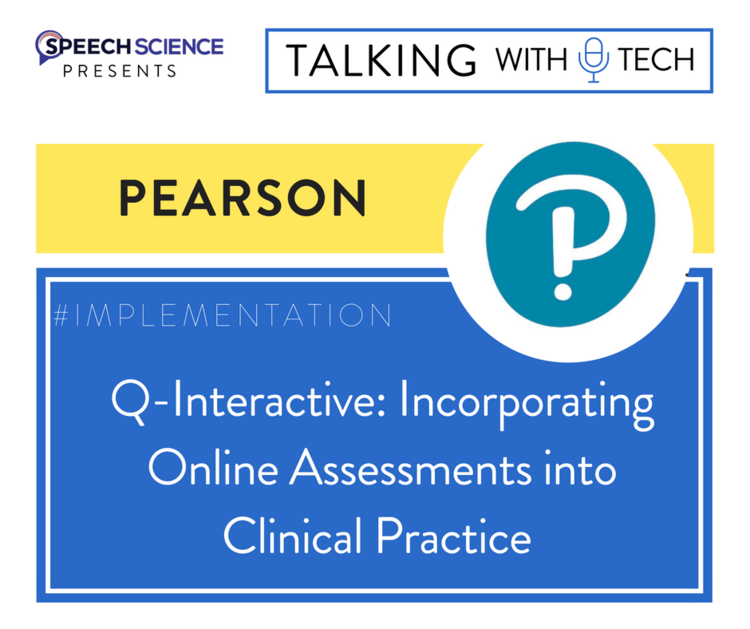
Wednesday Dec 13, 2017
Wednesday Dec 13, 2017
In this episode Talking with Tech's Lucas Steuber and Rachel Madel sit down with Pearson's Dustin Wahlstrom, James Henke, and Kristen Getz to talk about their Q-Interactive tablet-based assessment platform, the impact of the format change (if any) on clinical outcomes, and the current state of critical SLP assessments like the Goldman-Fristoe-3 (Spanish and English), the CELF-5, the PPVT-3, and others that are coming to the platform soon.
For more information about Q-Interactive or the assessments within visit the Q-Interactive site and feel free to email us any questions to pass along.
Thanks for listening! As always, contact us at tech@speechscience.org with any feedback and make sure to subscribe, rate, and share!